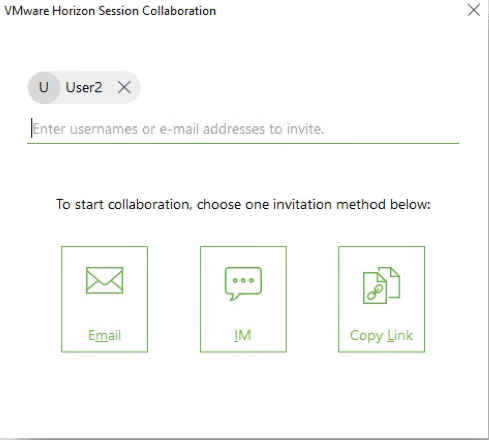VMware has announced the release of VMware Horizon 7.4 and VMware Horizon Client 4.7, both of which are designed to add innovation in new user workflows, desktop administration and user experience areas. This new update includes improvements to Linux and published-application (RDSH), better collaboration opportunities, and an enhanced user experience.
VMware has announced the release of VMware Horizon 7.4 and VMware Horizon Client 4.7, both of which are designed to add innovation in new user workflows, desktop administration and user experience areas. This new update includes improvements to Linux and published-application (RDSH), better collaboration opportunities, and an enhanced user experience.
The new Session Collaboration allows users to seamlessly and quickly collaborate with their colleagues from within their Horizon 7 session. Users simply need to open the session collaboration dialog and then send the invitation link to their colleagues. Users will be able to see a mirror image of the first user’s session with the option of giving control to other users as needed. For this feature, session collaboration must be enabled at the desktop pool level or RDSH farm level.
VMware indicates the following Session Collaboration requirements:
- VMware Blast Extreme display protocol
- Horizon Client 4.7 (Windows, Mac or Linux), HTML Access 4.7
- Maximum of five collaborators by default (can be increased)
- Horizon Agent 7.4 for virtual desktop infrastructure (VDI) and RDSH
- Horizon 7.4 Connection Server
- Horizon 7 Enterprise Edition license
VMware Instant Clone Technology (which has been available since Horizon 7.0 for Windows 7 and Windows 10 desktops) can be used to provision Linux desktops. This technology allows users to deploy Linux desktops faster, scale easier, and perform recurring maintenance more efficiently compared to full-clone desktop pools.
VMware indicates the following Instant Clones for Linux requirements:
- Instant-clone floating desktop pool
- Horizon 7.4 Connection Servers and Linux Agent
- Ubuntu 14.04 and 16.04
- Active Directory integration provided by Power Broker Identity Services Open (PBISO) v8.5.6 or later
Also announced is added support to provision NVIDIA vGPU instant-clone RDS hosts with Horizon 7.4, allowing 3D-based RDSH farms to take advantage of the fast provisioning and recurring maintenance features of Instant Clone Technology.
In addition, VMware has added the following other features that improve the user experience for RDSH published applications in Horizon 7:
- Hardware GPU Support on Windows Server 2016
- USB AutoConnect: Allows USB devices to be connected automatically the next time a remote application is launched
- Improved Application Launch Performance: Faster login time for Horizon published applications
- Enhanced Empty-Session Timeout Options: Allows immediate timeout of RDSH sessions upon disconnect
Continuing with new features from this substantial update, Horizon 7.4 Agent and Horizon Client 4.7 also add a range of new enhancements for Skype for Business virtualization:
- Support for Horizon 7 Mac Client: This includes HID devices and H.264 hardware cameras.
- Microsoft Office Integration: This includes Microsoft SharePoint, Yammer, Microsoft Word and Microsoft Outlook.
- Call Delegation: Users can be assigned to receive calls on behalf of, or in addition to, the person who assigned them as a delegate. Delegates may also make calls on behalf of another user.
- Call via X (home, work, etc.): A user enabled for Call Via Work can click in Skype for Business to call another user, either within their deployment or as an external user. The call is completed with the user’s PBX phone.
- Active Speaker Identification: During conference calls, the active speaker’s video is displayed.
- Volume Control from Remote Desktop: Users can now control the Skype for Business call volume from within the VDI desktop (using the volume control in the lower right corner).
- Response Groups: Call routing to groups of users, for example when a designated number is dialed, will ring users who are part of the call response group.
Lastly, the Horizon Client for Chrome OS has been updated with new features such as:
- True multi-monitor support
- Multiple sessions of remote Horizon 7 desktops and applications, with seamless windows
- Drag and drop of images and plain text from Android phones to remote virtual machines (VMs)
Sign up for the StorageReview newsletter

